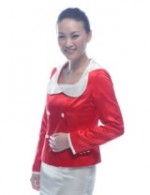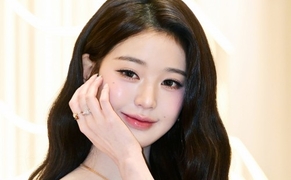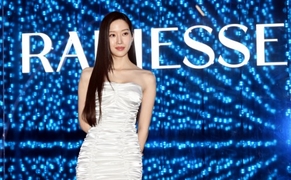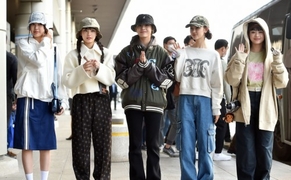 |
Written by veteran flight attendant and writer Ji Byung-lim - China's retaliatory measures over South Korea's decision to allow the deployment of a U.S. Terminal High Altitude Area Defense (THAAD) on the peninsula have been coming since the beginning of the new year. Chinese authorities announced on Jan. 3 that 28 cosmetics products failed to win approval for import, and among them 19 were Korean. It is quite perplexing for the domestic cosmetics industry, which has been totally depending on the Chinese market. Some still claim that K-beauty fever among Chinese consumers won't blow over easily and that they should watch the situation calmly. In brief, that's nonsense. Considering the mere fact that the domestic cosmetics export market has been concentrated in a single country for many years, we should say that the situation like this has been predicted since long ago.
Korean beauty fever has been spreading around the world along with the popularity of Korean dramas and music. The experience of getting free beauty samples over certain amount purchased, and enjoying various benefits with your points earned is certainly uncommon in the Middle East. It's no exaggeration to say that the Middle East cosmetics market is dominated by European and American beauty brands, such as Sephora. Facial mask packs, that many people use in Korea, are not so common in the Middle East. Various ethnic groups are in the Middle East due to the World Cup and construction of new airports, but getting basic cosmetics for different skin types is not so easy. My foreign colleagues, who have heard about the charm of Korean cosmetics, ask me to get some cosmetics products for them whenever I go to Korea. It's no exaggeration to say that cosmetics shopping has now become a synonym for visiting Korea. Nevertheless, the cosmetics markets in the Middle East, North Africa and Europe have been largely excluded. AmorePacific announced plans to launch its first Etude House in Dubai by the second half of this year, and it's hard to find a single road shop for Korean cosmetics brands in Qatar. Demand is high but supply is virtually none. This means that whoever starts it will take it.
There are 2 billion Muslims in the Middle East, Indonesia, Malaysia, India, China, and other parts of the world, with a KRW 100 trillion (US$ 88 billion) worth market. Since the climate of the Middle East is hot and humid, many women in the region spend much time taking care of their skin. They avoid going out in the summer, when the daytime temperature often soars above 40 °C degrees. On the other hand, indoor air conditioning works 24 hours day. So, it's necessary to drink a lot of water and keep your skin moist in order to overcome the indoor and outdoor temperature difference, otherwise, your skin would immediately start to sag and dull. If you think that they are not interested in adorning themselves because of their culture of covering themselves from head to toe, you're wrong. Women in the Middle East put emphasis on their healthy skin tone and beautiful looks in order to have the best courtesy, which leads to fancy makeup of the facial parts that are allowed to be exposed. According to Islamic law, products containing animal by-products such as alcohol or collagen are not permissible for Muslims. This is why we must develop "Halal cosmetics" as we seek to exploit the Middle East market in the long term. The world Halal means permissible in Arabic, and Halal products are those that are not tested on animals and free of alcohol. In other words, Halal cosmetics will bring a new change in the existing Middle East cosmetics market in the sense that they are environmentally friendly and organic.
The entry into the Middle East market is not easy due to difficult investment procedures as well as religious, cultural and climate differences. Without a thorough understanding of Islamic culture and customer needs, we won't be able to survive in the market for a long time. Our lack of understanding on their culture will bring bigger challenges under the name of ignorance and arrogance. We need to turn crisis into bigger opportunities by learning a lesson from China's import ban of Korean cosmetics. The Muslim population should be recognized as consumers. We need to understanding Islamic culture and develop Halal cosmetics that meet customer needs to approach them strategically.
I have seen many miracles in the desert in my life. Gorgeous building forests and artificial islands created on the sand have always told me that nothing is impossible. We should not misjudge the situation and overlook the golden opportunity. This is the right time to enter the Middle East cosmetics market.
*** Ji Byung-rim is a Qatar Airways cabin service director and the author of three books, including "How to Become a Crew of Arab Airline", "Thirty-year-old Crew', and "Charming Qatar." She also works as a K-MOVE mentor under Human Resources Development Service of Korea.
#Middle East #Halal #cosmetics
Copyright by Asiatoday
Most Read
-
1
-
2
-
3
-
4
-
5
-
6
-
7





















